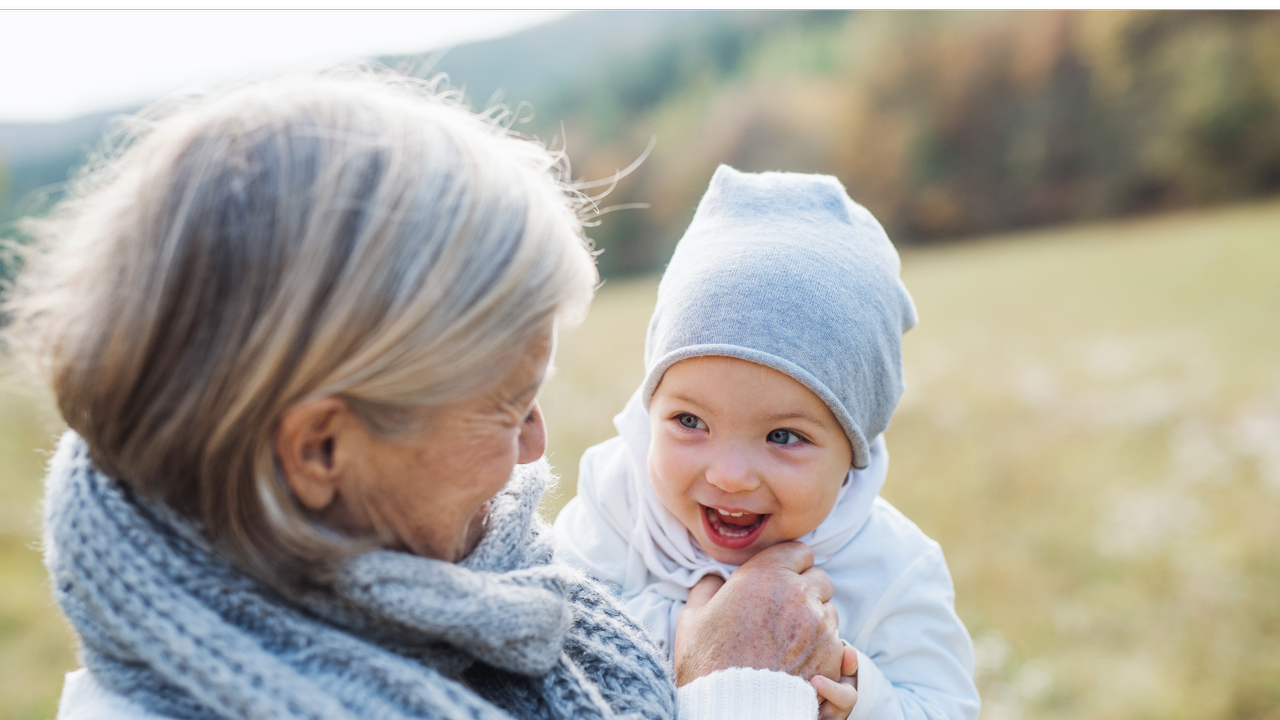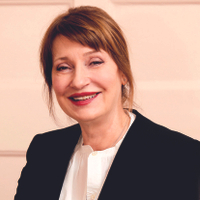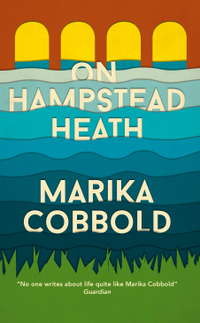In My Opinion: Granny Guilt – yes, it's a thing for today's grandmas...
A granny expecting to live her own life may find it's not so easy, says bestselling author and loving grandma Marika Cobbold


Marika Cobbold is a writer and bestselling author, who has penned eight fiction novels. Her short stories and journalism have also appeared in newspapers and magazines in the UK and Sweden.
Now a besotted grandma, here she explores the role of being a grandmother in today's society, and why she is determined to rally against the stereotypes...
After working mother guilt comes... Granny guilt
I was thrilled when my daughter told me she was expecting her first child, excited about the idea of getting to know this brand-new small person. We drank champagne. Well, I did. Then my son-in-law said, ‘Hello Granny.’
Who, what, where? I was just getting my head around my daughter becoming a mother, and now this. We’re encouraged to ask ourselves if we’re ready for parenthood. But no one ever asks if you feel ready to be a grandparent.
Grandchildren, so the Swedish saying goes, are ‘life’s dessert’. And who doesn’t like dessert, especially one that only makes other people put on weight? But what if you’re still busy munching your way through the main course?
Grandmother, Granny, Grandma, Nanna, Nan, so many names, so many expectations. We see her on TV, pink of cheek, silver of hair, pottering, not working, pottering, in her garden, or discussing her new funeral plan with the neighbour, who, incidentally, has a sideline in advertising stairlifts.
She cooks and bakes and, if of the younger variant, goes on nature walks and flies kites, but basically, according to the voice-over provided by Grandad, whose only job is doling out some Werther’s Originals candies, ‘She’s never happier than when looking after the grandkids.’ And just as she thinks she can put her feet up and take it easy, she is wheeled out, sometimes literally, in front of a massive audience by a grandchild hoping to bring a tear to Simon Cowell’s eye.

These were big orthopedically correct shoes to step into.
Helpful friends suggested I look to my own grandmother as a role model. I loved my grandmother. I saw a lot of her. Most weeks we had Sunday lunch with her and my grandfather and, in the summers, we lived next door to each other. Their guiding principle was simple: Ask not what we can do for our grandchildren, but what they can do for us.
Subsequently, my brother and I ran errands, and every so often, we were hosed down, dressed up and shown off to their friends. In return, we got to sit through three-course meals without stirring, learned to speak only when spoken to, and sit quietly and listen to the grown-ups talk, which wasn’t so bad since they’d mostly led colourful lives. My grandmother was a brilliant pianist and we loved listening to her play. If babysitting was required, she was happy to send Annie, her cook.
My own mother came closer to the current grandmotherly ideal, but there was still a way to go. She adored her grandchildren and being loved is the best thing that can happen to a child. She babysat and, as long as she had help, looked after them if we went away, but her grandparenting techniques were pretty similar to her parental ones, that is, telling her small charges that ‘Only boring people get bored’ while reclining on a sofa, a book in one hand and a cigarette in the other. Today’s children would be onto Childline faster than you could put out your cigarette.
These days, a good grandparent provides childcare. But when? How, in-between writing books and running a house and walking my dog and, dare I say it, having a social life, would I find the time and indeed the energy?
"Like so many women, I’d suffered from working-mother guilt. Would I now be liable for working-grandmother guilt?"
Society, in general, and the media, in particular, love a pigeonhole. If you have grandchildren, yours is a given. If you get run over by a bus, you can bet that the headline in your local paper won’t say nuclear physicist, truck driver or whatever you’d spent your life believing yourself to be, but grandmother. Being a grandmother is a gift, a piece of good fortune landing in your lap. What it is not, is a one-size-fits-all of who you are.
My grandchildren are the best thing that’s ever happened to me. I would happily jump in front of that bus for them. Only when I do, make it: Author run over by bus.

Marika's latest novel, On Hampstead Heath, is out now, published by Arcadia Books.
In On Hampstead Heath, we meet Thorn Marsh, a journalist at a London newspaper who is more devoted to her work than she ever was to her ex-husband. But when a reshuffle at work sees Thorn desperately fabricate a sorely lacking good-news story for the paper, she goes in search of the truth behind her creation...
Sign up for the woman&home newsletter
Sign up to our free daily email for the latest royal and entertainment news, interesting opinion, expert advice on styling and beauty trends, and no-nonsense guides to the health and wellness questions you want answered.
Marika is the acclaimed author of eight novels, including Guppies For Tea, which was picked as the first WH Smith’s Fresh Talent promotion and was serialized on Radio 4’s Woman’s Hour, as well as being made into a film starring Inge Meysel, titled Frozen Music. Marika is also the author of Drowning Rose, a Guardian Reader’s Book of the Year. Marika was born in Gothenburg, Sweden, into a family of readers and writers. Her novels are based all over the world. Her latest book, on Hampstead Heath, is a dark and witty exploration of ‘fake news’ set in West London.
-
 Caught ending explained: Who was the killer and is Leo dead?
Caught ending explained: Who was the killer and is Leo dead?Another Harlan Coben thriller is riding high on Netflix, and viewers are asking for a deep dive of the intense ending of Caught
By Lucy Wigley Published
-
 Chocolate brown is everywhere but Ranvir Singh's Reiss sale dress stands out from the crowd
Chocolate brown is everywhere but Ranvir Singh's Reiss sale dress stands out from the crowdRanvir Singh has made us fall in love with deep cocoa brown all over again and her Reiss midi dress is more than 50% off
By Emma Shacklock Published